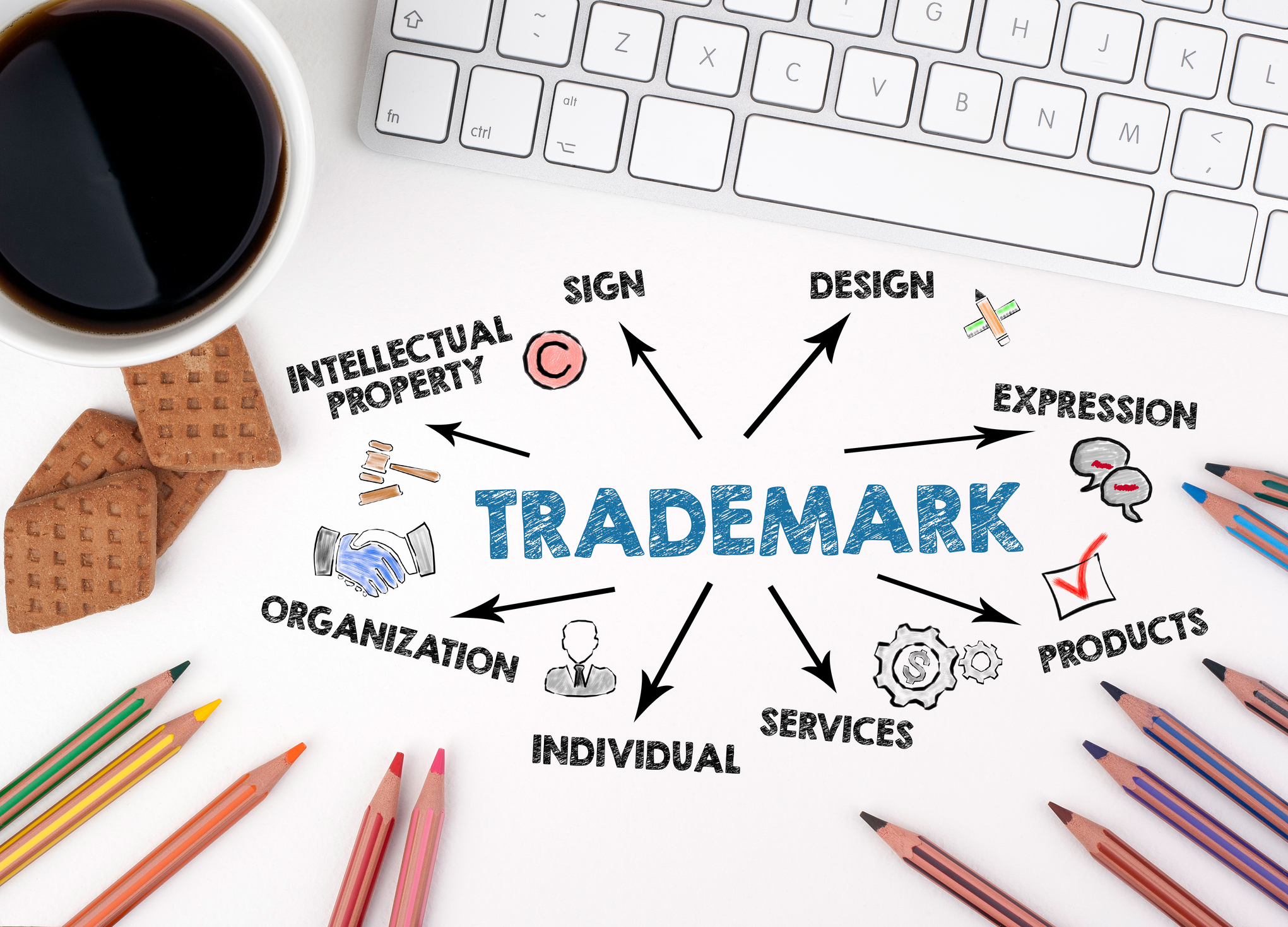“Your brand is your identity, your reputation, and your legacy. Protecting it through trademarks is not just a legal necessity—it’s a strategic imperative for business success.”- Barton Morris
Protect Your Brand Using Trademarks: The Power of Trademarks for Your Small Business
Trademark protection is a crucial aspect of safeguarding your business, brand, identity and reputation in today’s competitive landscape. Whether you’re a seasoned entrepreneur or just starting your business, understanding how a trademark can add significant value to your business is essential.
In the world of commerce, where brands serve as the cornerstone of consumer trust and loyalty, securing legal protection for your brand assets is essential. Catch our webinar above to learn more about the power and importance of registered trademarks and how the Law Offices of Barton Morris can help you.
Barton Morris, renowned for his expertise in business law, cannabis law, and liquor licensing, underscores the significance of intellectual property rights, particularly trademarks, in his practice based in Troy, Michigan.
Morris’ insights serve as a beacon of knowledge for businesses seeking to navigate the intricacies of trademark law. Through comprehensive guidance and practical insights, he empowers entrepreneurs to fortify their brands and shield them from infringement threats.
Understanding Trademark Basics
A trademark, a pillar of intellectual property law, encompasses various elements that separates your goods or services from those offered by competitors. A trademark can be a word, symbol, phrase, or design linked to your brand identity. It often is a combination of those items.
Trademark protection lies in its ability to secure exclusive rights to the trademark owner, enabling them to prevent unauthorized use by third parties. However, before digging deeper into trademark registration and enforcement, it’s important to grasp the fundamental foundations of trademark law.
Distinctiveness:
A sign of a robust trademark is its distinctiveness, which sets it apart in the marketplace. One of the most important things is to ensure there is not a potential for confusion between one mark and another that are for similar goods or services. Trademarks can be classified into different categories based on their unique properties, ranging from distinct marks like coined words, or marks with secondary meaning, such as descriptive terms that have acquired distinction over time through extensive use.
Non-Infringement:
Prior to starting the trademark registration process, conducting a thorough trademark search is necessary. This process involves searching existing trademarks to see whether your potential mark infringes upon any preexisting rights.
By identifying potential conflicts early on, businesses can limit the risk of costly legal disputes and ensure their trademark’s viability. These searches are mostly performed on the Trademark Search System of the USPTO website. They can also be performed in other ways, like a simple Google search.
Registration Process:
Obtaining federal registration with the United States Patent and Trademark Office (USPTO) bestows numerous advantages. Morris explains the process of registration in the webinar above, guiding businesses through electronic filing, and equipping them with the necessary steps to creating unique intellectual property.
Enforcement Strategies:
Securing a registered trademark serves as a shield against infringement, allowing businesses to safeguard their brand integrity and market share. There are many effective enforcement strategies, outlining how trademark owners can assert their rights and combat unauthorized use of their property.
By familiarizing yourself with these foundations, businesses can feel secure in carrying on with regular business activities with clarity and confidence. They can continue on knowing that the intricacies of trademark law don’t have to be a burden.
Protecting Your Brand: Why Trademark Registration Matters

At its core, trademark registration serves as the cornerstone of safeguarding your business’s identity and distinguishing it from competitors. By securing a trademark, you establish exclusive rights to your brand name, logo, slogan, or design, thus preventing others from capitalizing on your hard-earned reputation and goodwill.
Moreover, trademark registration provides crucial security in case of infringement, enabling you to take swift action against unauthorized use of your brand by competitors or scammers. This not only protects your business interests but also preserves consumer trust and confidence in your products or services.
Brand Value
Beyond just legal protection, trademark registration holds significant commercial value by enhancing brand recognition and market visibility. A registered trademark shows credibility and professionalism to potential customers, fostering brand loyalty and business growth. It serves as a powerful marketing tool, allowing you to leverage your brand’s reputation to expand into new markets and attract potential customers.
Furthermore, trademark registration opens doors to licensing and franchising opportunities, enabling you to monetize your brand assets and generate additional revenue streams. By licensing your trademark to third parties, you can extend your brand’s reach and diversify your business interests while guaranteeing control over its quality.
While businesses may operate under a common law trademark—established through use in commerce—registering your trademark with the USPTO offers numerous advantages:
Protecting Your Brand With Trademarks via the USPTO
- National Protection: A federally registered trademark provides exclusive rights nationwide, preventing others from using similar marks that could cause confusion among consumers.
- Increased Brand Value: Registered trademarks carry inherent value, enhancing the marketability and worth of your brand. They can be licensed, sold, or used for business loans, opening up new avenues for revenue generation.
- Enforcement: With a registered trademark, you gain the legal authority to enforce your rights against infringing parties. This includes via cease and desist letters, initiating legal proceedings, and seeking damages for trademark infringement.
- Expansion Opportunities: Registering your trademark lays the foundation for future expansion and growth. Whether you’re eyeing new markets, licensing agreements, or franchising opportunities, a federally recognized trademark offers credibility and protection.
The Trademark Registration Process
Navigating the trademark registration process may seem like a daunting task and can be potentially overwhelming for entrepreneurs and business owners.
However, armed with the right guidance, such as that offered by the Law Offices of Barton Morris, this process becomes manageable and rewarding. With our deep understanding of trademark law and proven track record of success, we provide the assurance and support necessary to protect your valuable intellectual property rights.
Trademark Searching
Before applying for trademark registration, searching for the trademark you’d like to register is essential. This helps identify existing trademarks that may conflict with yours, mitigating the risk of rejection or legal disputes down the line.
Professional trademark attorneys utilize advanced search tools and methods to identify potential conflicts and assess the likelihood of successful registration. By discovering any conflicting marks early on, businesses can avoid costly legal disputes and setbacks down the line. In November of 2023 the USPTO completely changed their searching system so it’s important that a person familiar with the changes performs the search.
Filing the Application
Submitting a trademark application through the USPTO’s electronic filing system begins the registration process. The application requires specific information about your mark, including its description, class of goods or services, and evidence of current use or intent to use.
This includes providing necessary documentation, including the trademark specimen and a description of the goods or services associated with the mark. Experienced attorneys assist clients in crafting precise and legally sound applications, minimizing the risk of rejection or objections from examiners.
Examination and Publication
Following the submission of the trademark application, it enters an examination phase by a trademark examiner at the USPTO.
During this stage, examiners review the application for compliance with statutes and may issue office actions requesting clarification or addressing any urgent issues. If approved, it’s published in the USPTO’s Official Gazette, allowing third parties to oppose it within a specified period.
Registration and Maintenance
Upon completion of the examination process and resolving any oppositions, your trademark is officially registered. Periodic filings and fees may be required, ensuring ongoing protection.

Trademark Enforcement and Protection Strategies
Registering your trademark is just the first step; enforcement and protection are equally vital. Just a few key steps can help safeguard your brand against infringement and unauthorized use:
Monitoring and Surveillance:
Monitoring and surveillance mechanisms are paramount to quickly identifying any instances of unauthorized use or infringement of your trademark.
This involves using monitoring tools and services to track online and offline channels for any signs of misappropriation of your brand.
Attorneys skilled in trademark law leverage can detect potential infringements early on and take swift action to address them.
Cease and Desist Actions
In the event of trademark infringement or unauthorized use, a cease and desist letter is often the first step in enforcing your rights. These letters formally notify the infringing party of their violation and demand cessation of the infringing activities.
Crafted by experienced trademark attorneys, cease and desist letters outline the legal basis for the claim, the specific infringements observed, and the requested actions, such as ceasing use, destroying infringing materials, or even compensation for damages.
Administrative Remedies
Beyond cease and desist letters, there are administrative remedies available to address trademark infringements. These include filing complaints with online platforms and marketplaces where infringing products or services are being advertised or sold.
Attorneys well-versed in trademark enforcement understand these administrative procedures, effectively advocating for the removal or delisting of infringing content and protecting the integrity of your brand on digital platforms.
Licensing and Brand Management:
Consider licensing your trademark to third parties under controlled agreements. Additionally, establish clear brand guidelines and standards to maintain consistency and integrity across all brand assets.
Effective brand management and licensing strategies play a pivotal role in maximizing the value of your trademark assets while limiting risk of unauthorized use. Trademark attorneys assist clients in developing brand plans, including licensing agreements that grant authorized use of the trademark to third parties while maintaining quality standards and brand integrity.
By strategically licensing your trademark, you can expand your brand’s reach and generate additional revenue streams while ensuring compliance with trademark laws and regulations.
Litigation and Enforcement Actions
In cases where informal resolutions are not possible or effective, seeking litigation or enforcement actions may be necessary to protect your trademark rights.
Skilled trademark litigators have the expertise to navigate complex legal proceedings, including filing lawsuits for trademark infringement, seeking injunctive relief to halt infringing activities, and pursuing damages for economic harm suffered as a result of the infringement.
Through these actions, attorneys work tirelessly to enforce trademark rights and secure favorable outcomes for their clients.

In conclusion, trademarks serve as invaluable assets for businesses seeking to establish and protect their brand identity. By securing federal trademark registration, you gain exclusive rights, enhanced brand value, and greater opportunities for growth and expansion.
From initial trademark searches to ongoing enforcement efforts, prioritizing trademark protection is essential for long-term success in today’s competitive marketplace.
Get in touch with us below if you have a trademark you need registered, or need business guidance!
Get in Touch With Us






